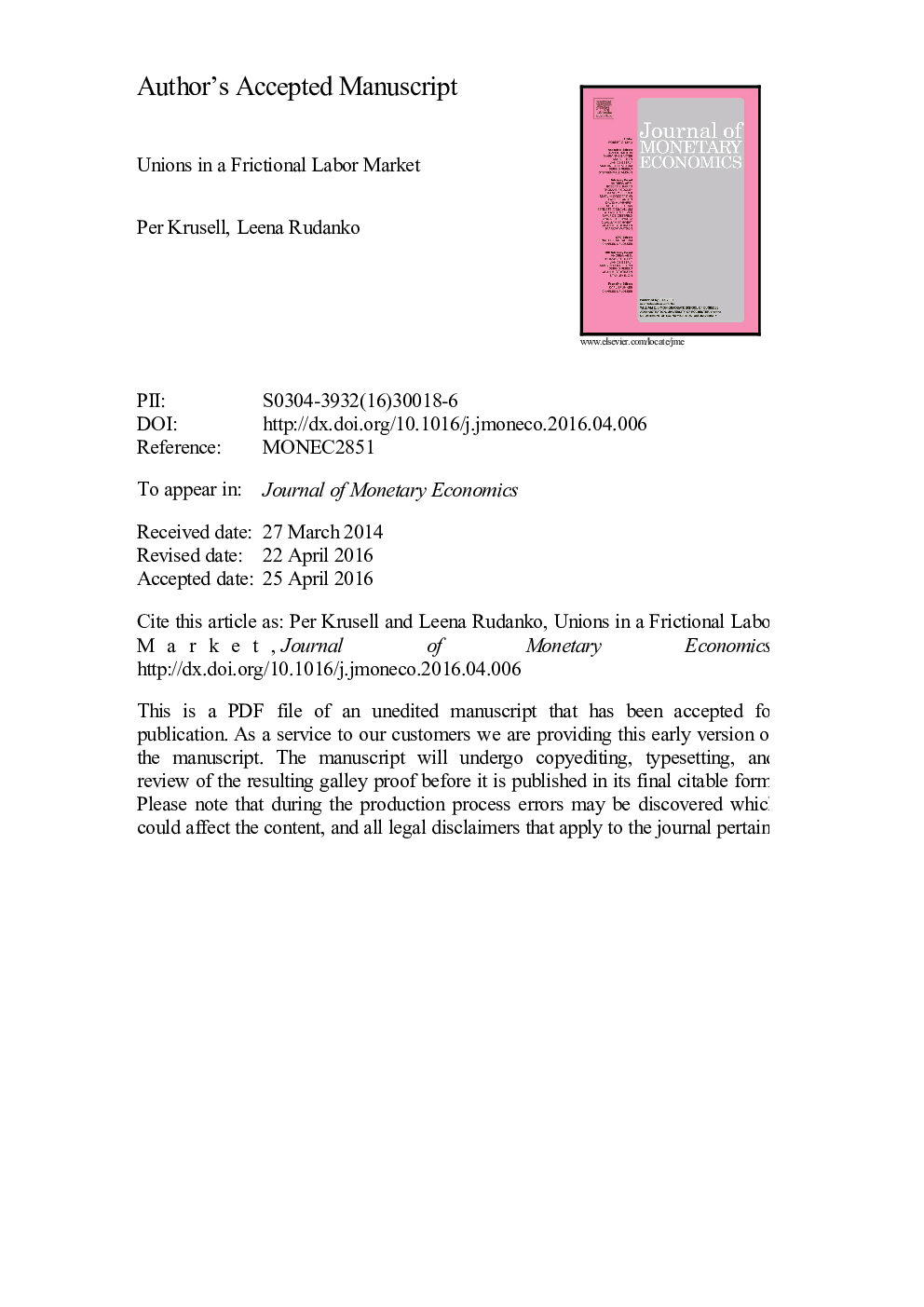| Article ID | Journal | Published Year | Pages | File Type |
|---|---|---|---|---|
| 967546 | Journal of Monetary Economics | 2016 | 33 Pages |
Abstract
A labor market with search and matching frictions, where wage setting is controlled by a monopoly union that follows a norm of wage solidarity, is found vulnerable to substantial distortions associated with holdup. With full commitment to future wages, the union achieves efficient hiring in the long run, but hikes up wages in the short run to appropriate rents from firms. Without commitment, in a Markov-perfect equilibrium, hiring is too low both in the short and the long run. The quantitative impact is demonstrated in an extended model with partial union coverage and multiperiod union contracting.
Related Topics
Social Sciences and Humanities
Economics, Econometrics and Finance
Economics and Econometrics
Authors
Per Krusell, Leena Rudanko,
